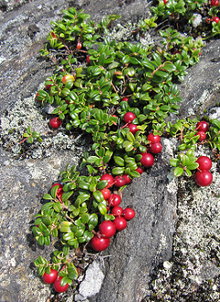
Bleaching your skin is a controversial subject and one that certainly raises many questions and concerns. Also referred to as skin whitening or skin lightening, skin bleaching involves using chemicals to lighten up the tone of the skin, or to bring about a more even and uniform complexion on people who may have uneven skin tones.
Whilst some chemicals will result in a lightening of the skin, the risks involved are concerning. Many of the chemicals that people use for this procedure are considered to be toxic, and can result in significant short and long term damage to the skin.
Why Do People Bleach Their Skin?
People who have birthmarks, moles or other hyperpigmentation conditions might consider bleaching as an option to return their skin to a more uniform tone.
What Are The Risks Involved
More and more people are realizing that there are many risks, and some of them can be quite severe. The skin where the bleaching is applied, usually on the face, can become thinner over time.
Additionally, an increase in pigmentation may even occur around the eyes. This can result in darker eye circles – a result certainly not in line with the original intention of skin bleaching.
If you are considering skin bleaching, is it always best to have it done by a trained professional. Whilst it may be tempting to save money and undertake a ‘do it yourself’ method at home, this poses significant risks and is not recommended.
So What Products Are Effective?
Hydroquinone is one of the main ingredients used in the skin bleaching process. It is available as a 2% or 4% concentration depending upon if it is being used in a cosmetic or pharmaceutical grade product.
The reason that hydroquinone is so widely used in skin bleaching and in skin lightening products is because it has been proven to inhibit the production of melanin. This does not actually result in the bleaching of the skin, but instead makes it appear lighter.
 However, despite its effectiveness in this department, some countries have banned it because studies have shown that it may be a cancer risk. France for example, is one such country that has a ban in place on hydroquinone.
However, despite its effectiveness in this department, some countries have banned it because studies have shown that it may be a cancer risk. France for example, is one such country that has a ban in place on hydroquinone.
Is There A More Natural Option?
A more natural alternative to Hydroquinone is Arbutin, which is often used in some of the natural skin lightening products. Arbutin is found in a number of extracts including mulberry and bearberry. This ingredient also stops the production of melanin and thus can be effective for skin lightening.
So is skin lightening that doesn’t use natural ingredients a safe option for people who want to improve the tone and pigmentation of their face? Well, the research continues but the products are still on sale meanwhile!
There is little doubt that the evidence suggests that prolonged use of skin lightening techniques that make use of harsh ingredients like Hydroquinone and mercurous chloride can be dangerous, not only for the skin, but for the entire body.
As Hydroquinone itself has been banned in many European countries, besides prescription use, it is worth questioning whether it should be a consideration for you or not in your skin care regime. Many people are now preferring to take the safer, more natural route of taking advantage of natural extracts instead like arbutin.
 What options do people have if they decide traditional skin bleaching is too dangerous, harsh and risky for them?
What options do people have if they decide traditional skin bleaching is too dangerous, harsh and risky for them?
Products such as Meladerm are quite revolutionary as they do away with the Hydroquinone, steroids and other harsh ingredients (you can read more about this product in our Meladerm cream reviews). Instead they rely on the more natural alternatives like Arbutin, as well as a formulation of vitamins, minerals and natural extracts that work together to help achieve a smoother and more even toned skin pigmentation. And with the aim of having no side effects, unlike the products that use harsh bleaching ingredients.
In Conclusion
When it comes to knowing how to bleach your skin, it’s a matter of selecting the right product for your needs, and importantly, being completely aware of the ingredients used in any product that you are considering. Whilst it is always important to see your dermatologist if you are thinking about trying a new skin care product to improve your skin tone, remove age spots, sun spots, and other blemishes – being self informed is also important.
Generally your two main choices will be: to use the traditional yet now questionable hydroquinone-based products that may have considerable risk of side effects. Or to choose a more natural solution that poses less risk, and in the case of high quality products, can bring about similar, or even better, positive changes to the tone of your skin by making it lighter, as well as reducing the signs of different types of blemishes.
If you have concerns about bleaching your skin, or using skin lightening products to help improve the tone of your skin, speak with your dermatologist to determine the best course of action for you.
